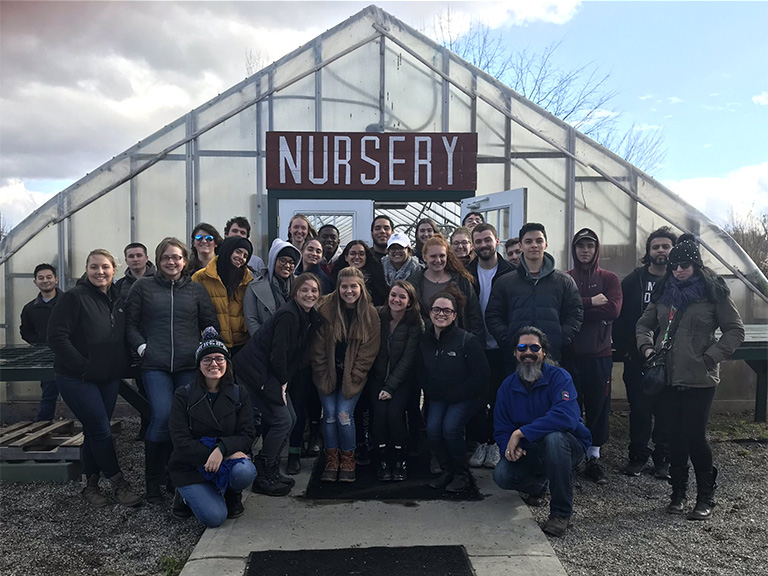 In a popular community-engaged learning course, a group of Manhattan College chemical engineers are discovering where their food comes from and the processes that take place to grow, harvest and transport food from farms across the country. One such place is a farm 90 minutes north at McEnroe Organic Farm in Millerton, New York.
In a popular community-engaged learning course, a group of Manhattan College chemical engineers are discovering where their food comes from and the processes that take place to grow, harvest and transport food from farms across the country. One such place is a farm 90 minutes north at McEnroe Organic Farm in Millerton, New York.
“I wanted students to see how organic farming processes work,” says J. Patrick Abulencia ’97, Ph.D., associate professor of chemical engineering. “How do they grow their lettuce? How do they farm their tomatoes? How do they treat their chickens and turkeys? How are these different from non-organic suppliers?
“One particular advantage of working with McEnroe is that they are committed to organic and sustainable farming; their on-site generation of compost, which helps reduce solid waste, being a prime example,” Abulencia explains.
Energy In = Energy Out
Students visited the farm in November and took part in regular lectures, discussing the benefits of buying from local farms and merchants, the job and internship opportunities available in the food industry and the engineering processes that go into what we eat and drink.
In Abulencia’s Process Calculations course (CHML 207), the principal emphasis is on material and energy balance calculations. The course focuses on the basic premise that the amount of mass and energy entering a process should equal the mass and energy leaving.
“The idea is to have students, as an example, think about the energy it takes to get produce from Central Valley in California all the way to New York City, versus that produce coming from two hours north of here,” Abulencia explains.
The goal of the course, and other community-based learning courses, is to encourage students to ask questions about where their food comes from and connect those questions with opportunities to meet the community-defined needs of people in underserved communities or work with agencies which advocate for the poor and/or care for the environment.
After completing the course, the students plan to advocate for more opportunity and access to local and organic products in the Riverdale-Kingsbridge community.